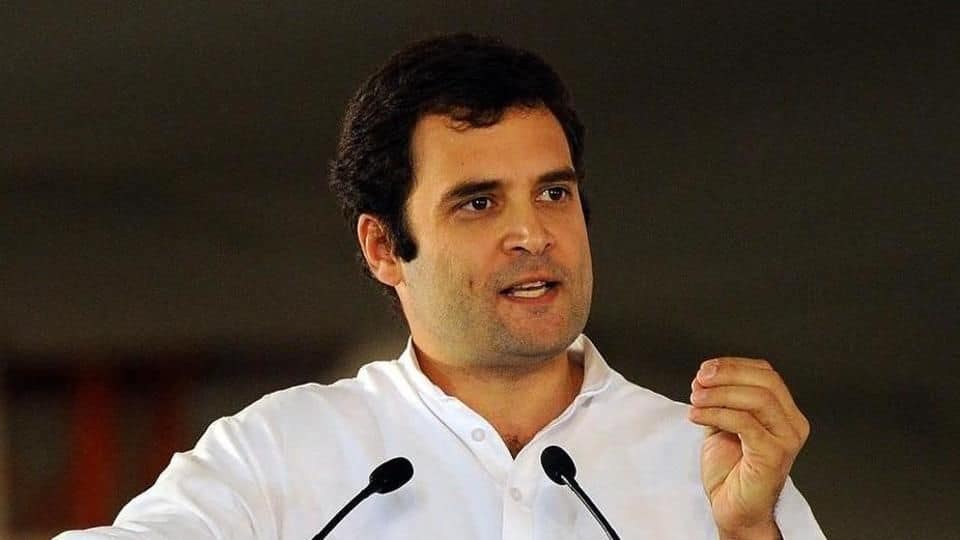
Rahul Gandhi files nomination for Congress president post, amid drama
What's the story
Congress vice-president Rahul Gandhi has filed his nomination for the party president's post, finally paving the way for his elevation. Before the move, he met former PM Manmohan Singh and former president Pranab Mukherjee The development was not without drama though: Shehzad Poonawalla, Maharashtra Congress secretary, has alleged that the elections are rigged. How does Congress elect its President? Here are the details.
Schedule
Congress's internal elections right after Gujarat, Himachal poll results
The Congress is holding its internal election on December 16 and will announce the results on December 19, a day after vote-counting in the Gujarat and Himachal Pradesh polls. Some leaders felt if Congress loses in either state after Rahul's elevation, it would not be flattering for him. However, others opined losses would anyway be linked to Rahul, the star campaigner.
Election
How does Congress elect its chief anyway?
After the Congress Working Committee (CWC) sets the schedule, any ten delegates may propose a candidate for president. To win, a candidate has to secure more than 50% votes. If none does, second-preference votes would be counted. If there's just one candidate, they are declared President. They take charge from the next plenary session. The president is elected for a term of five years.
Do you know?
What will happen to Sonia Gandhi once someone replaces her?
Sonia Gandhi, who became Congress chief in 1998, is the longest-serving president of the party. It is not yet clear what her role would be post a decision on the party's next president, but sources say she is likely to remain a senior advisor.
Drama
High drama ahead of nominations as Poonawalla alleges "rigged" elections
Experts said Rahul is likely to become the party chief unopposed. But just before his nomination, Shehzad Poonawalla, brother of Tehseen Poonawalla (Robert Vadra's cousin's husband), alleged the elections are rigged. "Congress has no place for Shehzad, but for Shehzada," he said. PM Modi brought up the controversy at a Gujarat rally, saying, "Those who have no internal democracy can't work for the people."
Twitter Post
What do Congress's senior leaders have to say?
Do BJP presidents get elected? Did Nitin Gadkari get elected through a ballot process? Let them answer that first: Kamal Nath,Congress pic.twitter.com/7nkYPYeyhi
— ANI (@ANI) December 4, 2017